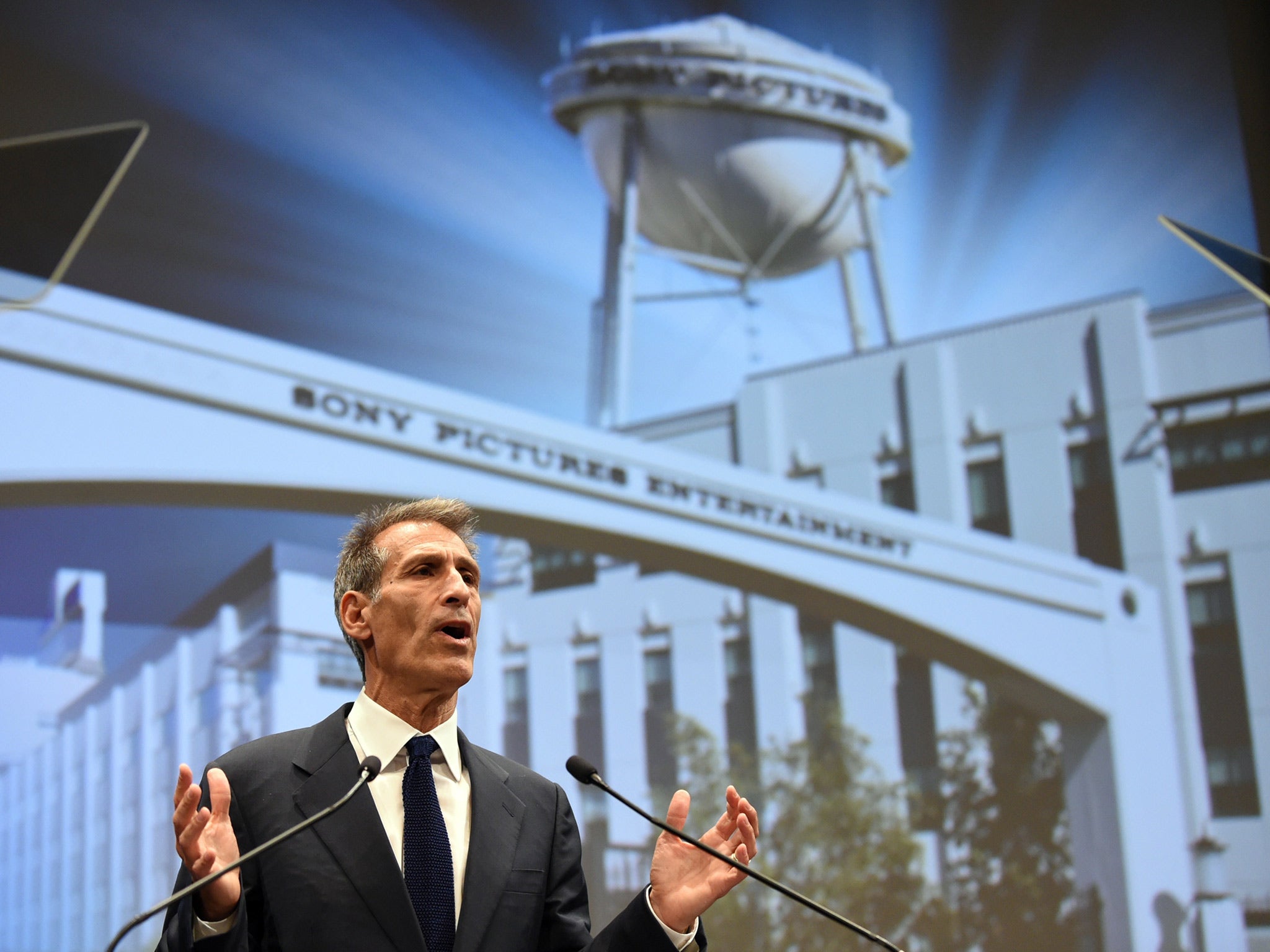Sony boss denies accusations that studio 'caved' to North Korea pressure by cancelling 'The Interview'
The studio chief's comments came after President Obama told reporters he believed Sony 'made a mistake' in cancelling the release

The chief executive of Sony Pictures has denied accusations that the Hollywood studio “caved” by cancelling the release of its satirical comedy The Interview, following threats against cinemas from hackers linked to North Korea.
In an interview with CNN recorded on Friday, Michael Lynton said, “We have not caved, we have not given in, we have persevered and we have not backed down.”
The studio chief’s comments came after President Barack Obama told reporters he believed Sony “made a mistake” in cancelling the Christmas Day release of the film, which depicts the death of North Korean leader Kim Jong-un. “We cannot have a society in which some dictator someplace can start imposing censorship here in the United States,” Mr Obama said. “If somebody is able to intimidate folks out of releasing a satirical movie, imagine what they start doing when they see a documentary they don’t like, or news reports they don’t like.”
On Friday the FBI announced that North Korea was behind last month’s devastating cyber-attack on Sony, which left the studio’s computer systems crippled and led to vast amounts of sensitive corporate data being leaked online. Mr Lynton insisted that the President, press and public were all wrong about the decision to pull the film, saying Sony’s hand had been forced by US cinema chains, which had refused to screen it.
In a statement, the studio said, “Free expression should never be suppressed by threats and extortion,” adding that Sony was actively seeking alternate means of releasing the film, including via video on demand. “It is still our hope that anyone who wants to see this movie will get the opportunity to do so,” the statement said.
Join our commenting forum
Join thought-provoking conversations, follow other Independent readers and see their replies
Comments
Bookmark popover
Removed from bookmarks